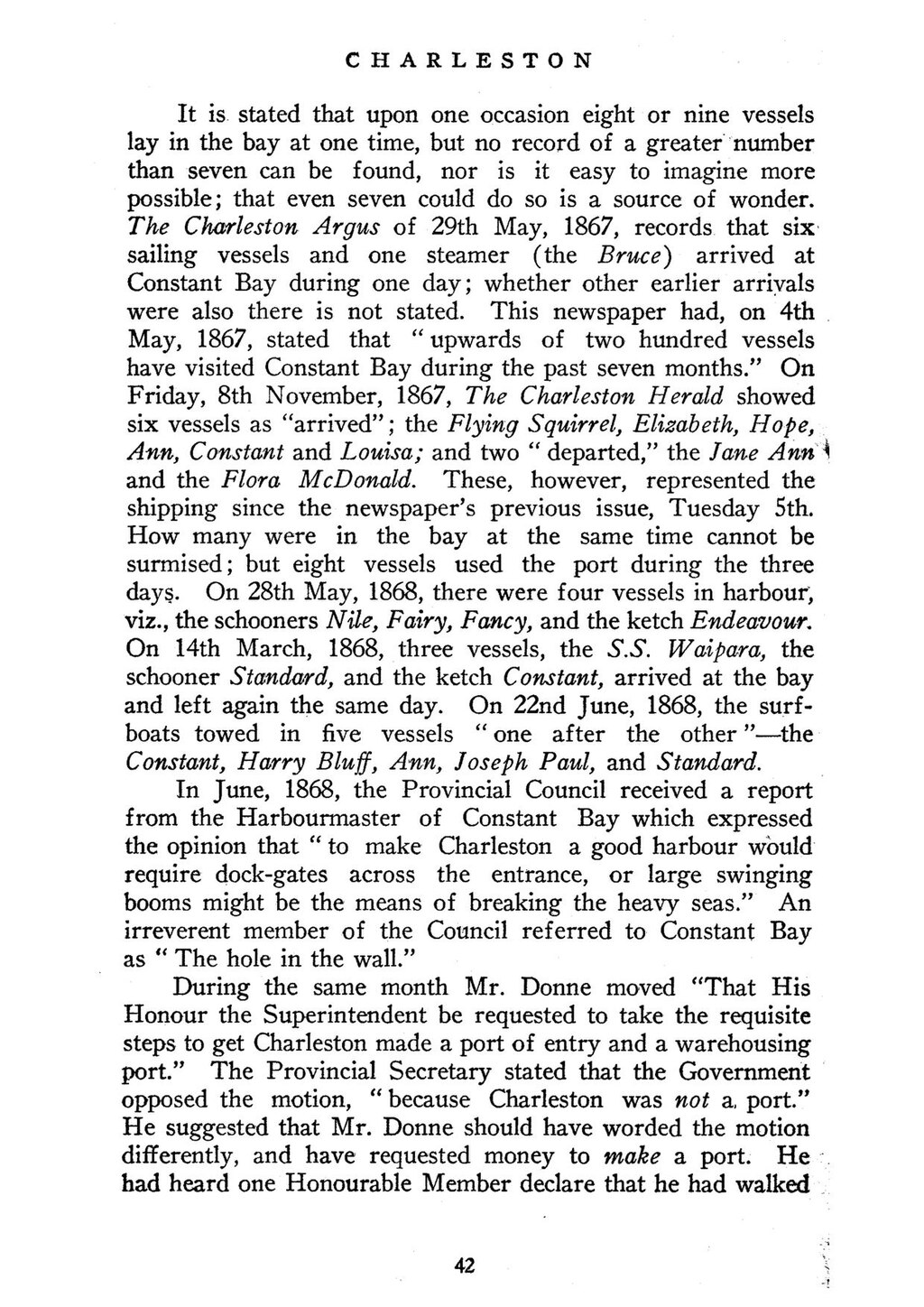CHARLESTON
It is stated that upon one occasion eight or nine vessels lay in the bay at one time, but no record of a greater number than seven can be found, nor is it easy to imagine more possible; that even seven could do so is a source of wonder. The Charleston Argus of 29th May, 1867, records that six sailing vessels and one steamer (the Bruce) arrived at Constant Bay during one day; whether other earlier arrivals were also there is not stated. This newspaper had, on 4th May, 1867, stated that “upwards of two hundred vessels have visited Constant Bay during the past seven months.” On Friday, 8th November, 1867, The Charleston Herald showed six vessels as “arrived”; the Flying Squirrel, Elizabeth, Hope, Ann, Constant and Louisa; and two “departed,” the Jane Ann and the Flora McDonald. These, however, represented the shipping since the newspaper’s previous issue, Tuesday 5th. How many were in the bay at the same time cannot be surmised; but eight vessels used the port during the three days. On 28th May, 1868, there were four vessels in harbour, viz., the schooners Nile, Fairy, Fancy, and the ketch Endeavour. On 14th March, 1868, three vessels, the S.S. Waipara, the schooner Standard, and the ketch Constant, arrived at the bay and left again the same day. On 22nd June, 1868, the surf-boats towed in five vessels “one after the other”—the Constant, Harry Bluff, Ann, Joseph Paul, and Standard.
In June, 1868, the Provincial Council received a report from the Harbourmaster of Constant Bay which expressed the opinion that “to make Charleston a good harbour would require dock-gates across the entrance, or large swinging booms might be the means of breaking the heavy seas.” An irreverent member of the Council referred to Constant Bay as “The hole in the wall.”
During the same month Mr. Donne moved “That His Honour the Superintendent be requested to take the requisite steps to get Charleston made a port of entry and a warehousing port.” The Provincial Secretary stated that the Government opposed the motion, “because Charleston was not a port.” He suggested that Mr. Donne should have worded the motion differently, and have requested money to make a port. He had heard one Honourable Member declare that he had walked
42
